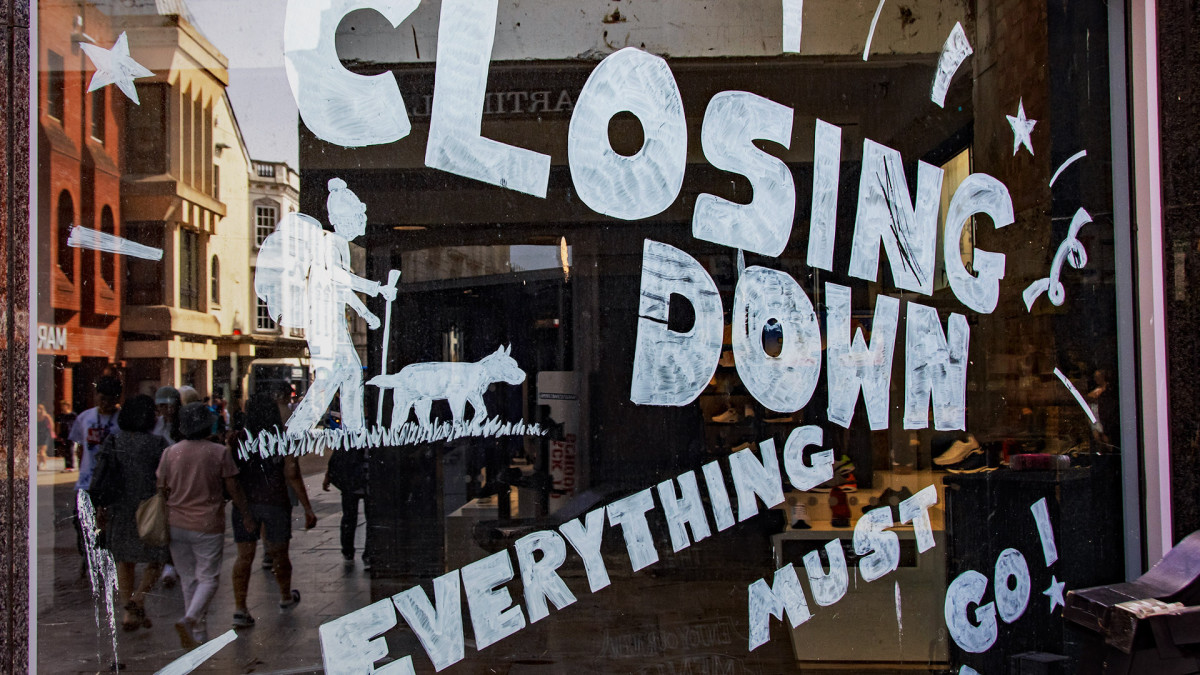
When a company files for bankruptcy, it creates an enormous amount of uncertainty.
During the Chapter 11 phase, both customers and vendors have concerns over the long-term survival of the brand. For vendors, it's not just very important whether they will get paid for their merchandise. There's also the ongoing question of providing product support if the company that made the sale eventually goes out of business.
Related: This former high-flyer will likely file for bankruptcy next
For customers, there's the risk of buying something that you may not be able to return. In the case of a retailer like David's Bridal, which survived a Chapter 11 filing, many brides pre-ordered dresses for their weddings and then had to worry about whether they would actually be delivered.
That's a situation that's not unique to David's Bridal. Any company that offers pre-ordering or has a lead time that's more than a day or two seems like a risky bet for customers during a bankruptcy.
In Chapter 11, however, companies generally have a court-approved process regulating their accounts payable, fulfillment, and return policy. Once a company moves to Chapter 7, uncertainty kicks in. In a case where Chapter 11 quickly becomes Chapter 7, customers can get caught in the middle.
As the bankruptcy court sorts out how a company's assets will be sold in order to pay its bills, customers don't know what's happening, In cases where they have paid for orders which have not been delivered they don't know if they will get their merchandise.
That's what has happened to customers of Mitchell Gold and Bob Williams where thousands of paid-for furniture orders are in the hands of Ryder System Inc. R which has not been paid by the bankrupt furniture retailer.

Image source: Benedikt Geyer from Pixabay
Ryder reaches a deal with Mitchell Gold and Bob Williams
Mitchell Gold and Bob Williams moved very suddenly from Chapter 11 to Chapter 7 liquidation when expected funding fell through. That meant that thousands of customers had orders placed before the first filing that had not been delivered.
Over 2,000 of those furniture orders sat in limbo in Ryder warehouses. In theory, the end customers owned those items because they had been paid in full, but Ryder had not been paid for delivery by the furniture company (even if customers had paid for delivery or it was included in their original sales price).
Now, a new court document provides a way for those customers to arrange delivery of their furniture. Ryder has agreed to send a letter to customers whose furniture they are holding laying out the following terms agreed upon by the various involved parties and approved by the bankruptcy court.
The Parties agree to the procedure set out in the Customer Letter, and agree that,upon an Eligible Customer’s full compliance with the requirements set forth in the CustomerLetter, including but not limited to payment of delivery and storage charges applicable to theEligible Customer’s Undelivered Furniture to Ryder as provided in the Customer Letter, Rydermay deliver that Eligible Customer’s Undelivered Furniture to that Eligible Customer whichfurniture shall upon delivery to the Eligible Customer be deemed free and clear of any liens,claims, or interests of any kind that may otherwise be asserted by PNC, Stephens, and/or theTrustee.
To put that in non-legalese, Mitch Gold and Bob Williams customers can get their furniture if they pay for its delivery. Once they receive their delivery, the items they paid for are theirs and no longer subject to any further bankruptcy proceedings.
Ryder is only part of the problem
“We wish to acknowledge the considerable frustration that the [Mitchell Gold Co.] shut-down may have caused you,” Ryder said in a letter it proposes to send out to customers. “Applicable bankruptcy law prevents Ryder from delivering any furniture in our possession without the agreement of the Trustee, certain lenders, and the approval of the United States Bankruptcy Judge overseeing the Bankruptcy Cases.”
The agreement between Ryder and the furniture company sets a path for agreements with other third-party carriers. Mitchell Gold and Bob Williams had an estimated $6.5 million worth of merchandise held at third-party facilities awaiting delivery and another $17 million stuck at its own facilities, RetailDive reported.
This deal will lead to many customers paying twice for shipping. They can file a claim for those charges with the bankruptcy court, but it's unlikely they will be refunded, although the court could decide to refund some (or all) of those payments.







